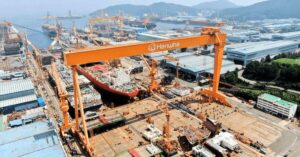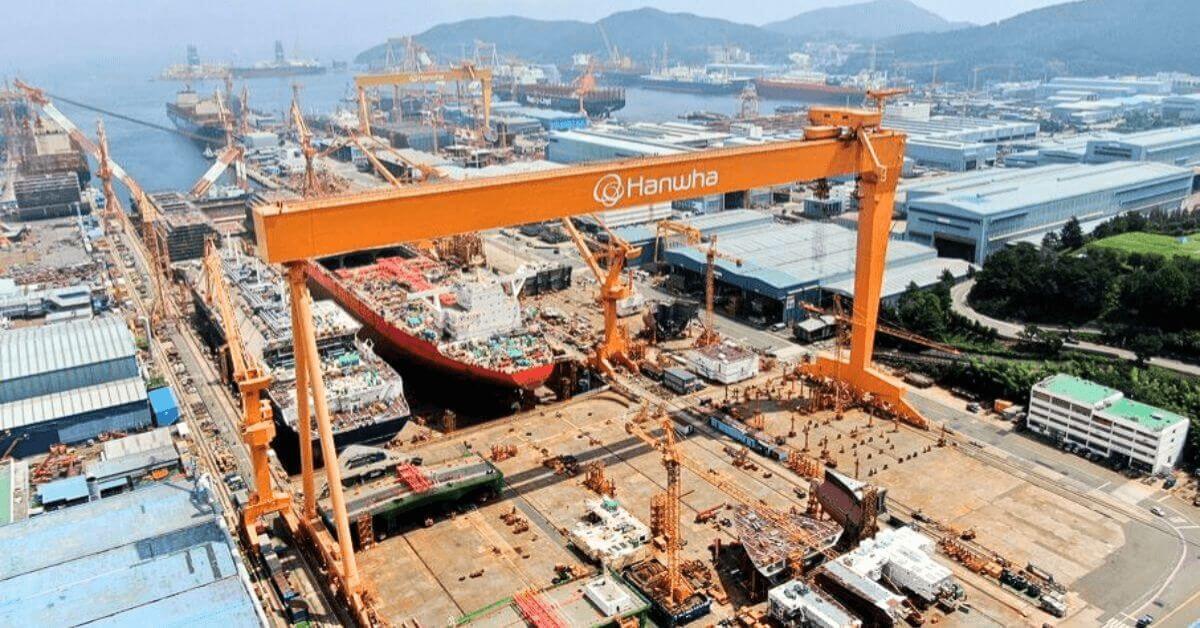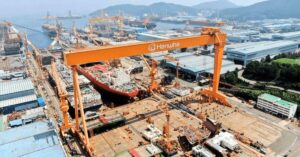
Oil Tanker Explosion At Indonesia’s Batam Shipyard Kills 10 & Injures Over 20
October 15, 2025
Libyan Militias Carried Out 60 Violent Attacks At Sea Since 2016, New Report Reveals
October 15, 2025

China has imposed sanctions on five United States-linked subsidiaries of South Korea’s leading shipbuilder Hanwha Ocean, further intensifying tensions between Beijing and Washington.
The decision, announced by China’s Ministry of Commerce on October 14, 2025, caused Hanwha’s shares to drop sharply.
According to the ministry, Chinese individuals and organisations are now prohibited from conducting any form of business, cooperation, or related activities with the sanctioned Hanwha entities.
The ministry alleged that Hanwha Ocean’s U.S.-linked subsidiaries had supported and assisted U.S. government investigations, which it claimed had undermined China’s sovereignty, security, and developmental interests. The statement did not provide further details on the alleged activities.
The sanctions were announced on the same day that China and the United States implemented reciprocal port fees targeting each other’s vessels. However, China has exempted vessels built domestically from the newly introduced fees.
Following the announcement, Hanwha Ocean’s shares fell 5.8%, while HD Hyundai Heavy Industries dropped 4.1%.
In a statement to Reuters, Hanwha said it was monitoring the situation closely and would continue serving customers “including through investments in the U.S. maritime industry and via Hanwha Philly Shipyard.”
South Korea’s Foreign Ministry said it was assessing the impact of the sanctions and would coordinate with China and related industries to reduce their impact on South Korean businesses.
Hanwha Ocean has been expanding its presence in the U.S. to support American shipbuilding. In August 2024, the company announced a US$5 billion investment in the Philly Shipyard, which it acquired earlier that year for US$100 million. This followed South Korea’s pledge to provide up to US$150 billion to help the U.S. rebuild its domestic shipbuilding sector.
The Trump administration has said the U.S. needs help from allies like Japan and South Korea to strengthen its shipbuilding industry, particularly in naval vessel production, an area where China currently leads.
Hanwha also operates a shipyard in Shandong, China, where it fabricates ship component modules. These modules are later sent to South Korea for final assembly, according to company filings.
Earlier this year, the U.S. introduced new port fees on China-linked ships to reduce Beijing’s dominance in the maritime sector. In response, China announced similar fees on U.S.-linked vessels, effective the same day.
Reference: Reuters
Source: Maritime Shipping News


